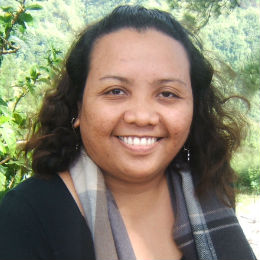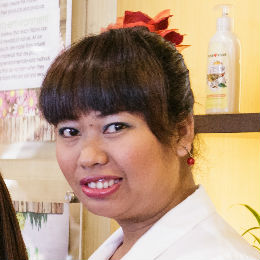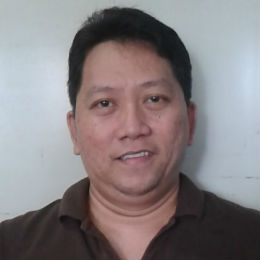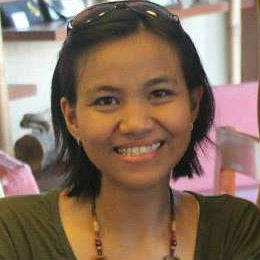 | ||||||||||||||||||
 HUMAN NATURE TURNS 6! As Human Nature celebrates its 6th year anniversary, six of the company's most influential employees reflect on their most valuable learning over the years.
Goodness Goes Full Steam Ahead at Human Nature's Manufacturing Plant! (Part 2) by Ara Alinea(Photos by Jansen Cheng) Last September, Human Nature added another milestone to its journey of sharing the goodness with the world in the form of our very first manufacturing plant in Canlubang, Laguna. 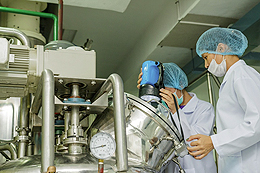 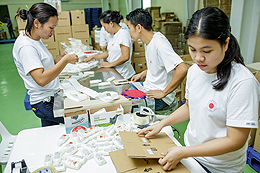 L-R: First phase of manufacturing: compounding | The last stretch before delivery to warehouse: labeling & coding of the finished goods Taking Goodness to the Next Level Being a beauty company that provides genuinely natural products, it's always a must to uphold high standards when it comes to our products' quality. "We have very strict cleaning and sanitization protocols," says Bless, "Natural products need more care to ensure absence of microbial and physical contaminants." And ensuring that these protocols are met to the very last dot is difficult when working with third-party manufacturers (TPMs). There's also the issue of efficiency as with TPMs, we share their resources with other companies so what products are needed and how often they're need to be produced are heavily dependent on this external factor. It's when faced with these difficulties that it was decided to take matters into our own hands and take that leap forward in providing world-class Filipino products. "It's always a challenge to start up your own manufacturing plant," says Elizabeth. Similar to developing new high-quality products, people from Quality Assurance and Research & Development assigned to the plant had to give the best output possible despite the limited resources. But even with the speed bumps of building our own plant from the ground up - of 24-hour shifts, starting production even with incomplete equipment, our own water system not installed yet, of no central air-conditioning (and even desks!) - we pushed through knowing that at the end of the day, it's all worth it. "The plant definitely will be the heart and core of Human Nature," explains Elizabeth, "It will be the central place of our operation because every bottle that will be produced here contains a touch of every department: Supply Chain for planning, QA for testing, Warehouse for distribution, and so on."  Sneak peek into our manufacturing plant's warehouse. Soon, it'll be the primary storage for all our products. Team Carmelray: Bayanihan at its Best Still a newcomer to the manufacturing industry, Team Carmelray is going through a steep learning curve but they leave no room for compromise when it comes to the running of the plant. "On a normal day, my shift is 9AM to 6PM," starts Maintenance Supervisor Manny Macasojot, "but because the plant is still in its infancy, I need to do whatever I need to do. I'm not thinking in work hours for now." Manny has only been in Human Nature for two months but he has already had many encounters with the power of bayanihan - one of the philosophies the company lives by. "At first, I'd get a bit surprised that my teammates would comfort me [when I'm stressed] because everyone here is so friendly to everyone. It's one for all, all for one in everything we do." 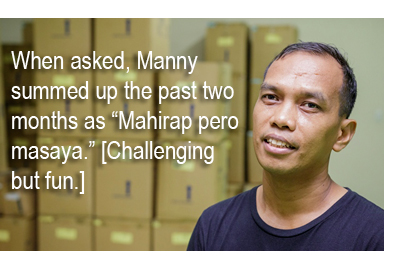 The people of team Carmelray always take the extra step to lift everyone's spirits up, especially at their current 24-hour shifts with only a few hours of rest on Sundays. "We are trying our best to complete all requirements," says Bless. "This is so we can increase the plant's productivity and efficiency in the coming weeks in preparation for the peak season." The people of team Carmelray always take the extra step to lift everyone's spirits up, especially at their current 24-hour shifts with only a few hours of rest on Sundays. "We are trying our best to complete all requirements," says Bless. "This is so we can increase the plant's productivity and efficiency in the coming weeks in preparation for the peak season." Though production at the plant is in overdrive for now, the people are expecting to shift gears to 16-hour day shifts in the coming weeks once everything is stabilized. Even now, despite the many challenges, we are experiencing faster and smoother production as compared to when we were tapping third-party manufacturers. Indeed, goodness grows fast! Unveiling Human Nature's COMET The future is finally here in the form of the COMET! The first of its kind in the world, it's an environment-friendly public e-vehicle that's built to change commuting in Metro Manila for the better! Green tech advocates and eco-warriors alike banded together at the Human Nature Commonwealth Flagship Store to celebrate this milestone.  "The Philippines is ready to be world-class," says father of Gawad Kalinga Tony Meloto at the COMET launch, echoing the innovation and the heart behind the goodness-on-wheels. COMET (City Optimized Managed Electric Transport) is the brainchild of GET (Global Electric Transportation). The whole concept emerged from Metro Manila's cry for urgent solutions on jeepney problems such as air and noise pollution, traffic congestion, safety of passengers and low wages for drivers. A 100% proudly Pinoy design, COMET definitely blazes through all of those concerns, being a vehicle that runs solely on electricity (no more ozone-depleting carbon dioxide!), has a safer side entrance (as compared to today's back entrance) and has its designated stops. It also offers COMET drivers basic salaries on top of health insurance benefits and bonuses. Indeed, with the help of this rolling revolutionary, the Philippines is moving steadily towards being world-class! Building Bridges: Fighting Poverty Through Wealth Creation 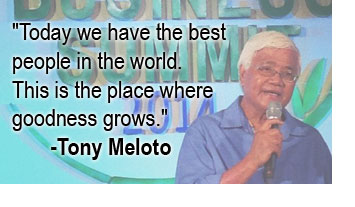 Walang iwanan has been the battle cry of Gawad Kalinga (GK), the Philippines' leading organization in poverty alleviation, in their mission to end poverty for 5 million families in the Philippines by 2024. To build a country where no man or woman is left behind, the value of inclusion must take precedence especially in the realm of business by honing the creativity and innovation of social entrepreneurs and building a strong economy of social enterprises. Walang iwanan has been the battle cry of Gawad Kalinga (GK), the Philippines' leading organization in poverty alleviation, in their mission to end poverty for 5 million families in the Philippines by 2024. To build a country where no man or woman is left behind, the value of inclusion must take precedence especially in the realm of business by honing the creativity and innovation of social entrepreneurs and building a strong economy of social enterprises. This battle cry was aptly the resounding theme of the Social Business Summit 2014 entitled, "Economic Innovation for Inclusive Wealth Creation." This summit, held last October 2-4, 2014, gathered together delegates from around the Philippines and the world in a symposium on the value of social entrepreneurship in achieving inclusive growth, the investment in social enterprises, and the need for wealth creation that is shared and sustainable in creating a Philippines that is the Social Business Hub of Asia. On Poverty and Building Bridges "We can characterize poverty as a lack of access," defines Senator Bam Aquino, "[a reality] where you're isolated and cannot cross over. When it comes to development in the Philippines, we have to talk about crossing over to a developed country." According to Aquino, social business - which can be defined as a corporation or enterprise that has social consciousness and sustainability embedded in their core values - is "a form of a bridge [connecting] farming and urban poor communities to larger markets.""We are the second best economy in the best economic continent in the world," declares Aquino. Our growth, according to Aquino, can be characterized as concentrated growth, where the poor currently do not prosper from the growth of our economy. "The challenge to fight poverty is to make sure that growth includes everyone."  Building a Sustainable World 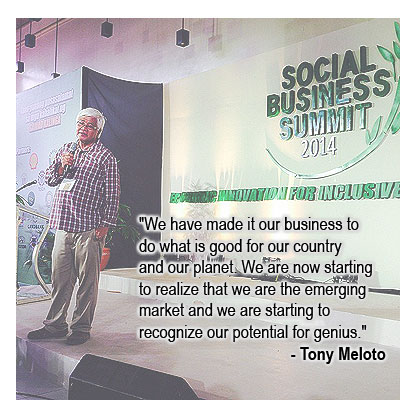 "For us to build a world that is sustainable, we have to have men of character," declares GK Founder Tony Meloto. Sustainability here refers to sustainable development and the ability of the corporations we build - the social businesses we erect - to respond to the social and environmental needs of the present society, while neither neglecting the needs of the poor nor foregoing society's ability to meet the needs of the future generations. "For us to build a world that is sustainable, we have to have men of character," declares GK Founder Tony Meloto. Sustainability here refers to sustainable development and the ability of the corporations we build - the social businesses we erect - to respond to the social and environmental needs of the present society, while neither neglecting the needs of the poor nor foregoing society's ability to meet the needs of the future generations. Sustainable development, according to Elisea Gozun, former Secretary of the Department of Environment and Natural Resources, is characterized by long-term economic growth, environmental protection, and social development. Green businesses, or enterprises that have a minimal negative impact on the globe, are therefore the key to creating a world that is both sustainable and profitable. "Human kind has let loose the Pandora's box and nature has responded," says Lorenzo Tan, President of the World Wildlife Fund. "We have the opportunity to take the world beyond revolution, but to renaissance." Investing in the Poor "The greatest good is brought about by investing in people," shares John Miller, CEO of Nestle Philippines. When businesses move from corporate social responsibility (CSR) to creating shared value (CSV) or inclusive growth, they define the sweet spot where business imperatives and social needs converge - where social responsibility evolves into a heightened consciousness at the heart of business models themselves, thereby influencing their everyday courses of action.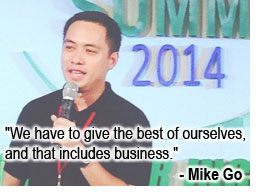 It is only by trusting the poor and investing in their potential that social entrepreneurs can tap into their creativity and innovativeness that create real solutions through participatory processes. "The burden of the social entrepreneur is the investment of the poor - it is their unconditional trust," says GK's Luis Oquinena. It is only by trusting the poor and investing in their potential that social entrepreneurs can tap into their creativity and innovativeness that create real solutions through participatory processes. "The burden of the social entrepreneur is the investment of the poor - it is their unconditional trust," says GK's Luis Oquinena. The Genius of the Poor 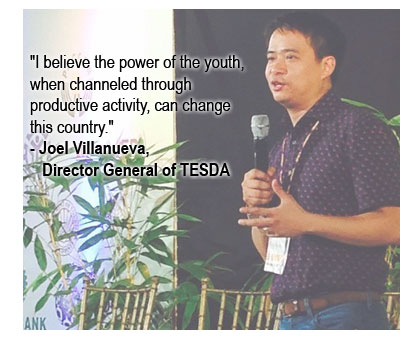 "Here in the Philippines, we are all poor because we keep leaving the poor behind," expresses Meloto. "The problem of the poor is really disconnection. [The answer is] bridging the genius of the rich with the genius of the poor." "Here in the Philippines, we are all poor because we keep leaving the poor behind," expresses Meloto. "The problem of the poor is really disconnection. [The answer is] bridging the genius of the rich with the genius of the poor." Social entrepreneurs have begun to come together to actualize a reality where Made in the Philippines connotes world-class quality and social consciousness goes beyond charity and pity purchases. "The youth is very empowered and very idealistic," says Shell's Edgar Chua. "These are the people who say, 'I want to be part of a company that is socially responsible, not just a company that profits'." "The Filipino was not raised to be entrepreneurs," Meloto continues. "But we were not just designed to be consumers- we can actually be producers. We will unlearn our colonial mentality." "The Philippines is going to catch up," exclaims Human Nature's Dylan Wilk. "Whatever it takes to make the country rise, the Filipinos are willing to do that. This country will not change except through sacrifice." 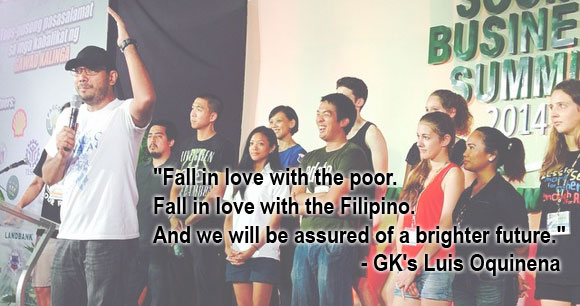 |
 Would you like to share your good news and inspirational stories with the rest of our Human Nature family? Send your goodness stories to nicole.sa@humanheartnature.com! Three stories will be featured each month, so come and share the goodness! Would you like to share your good news and inspirational stories with the rest of our Human Nature family? Send your goodness stories to nicole.sa@humanheartnature.com! Three stories will be featured each month, so come and share the goodness!  |
